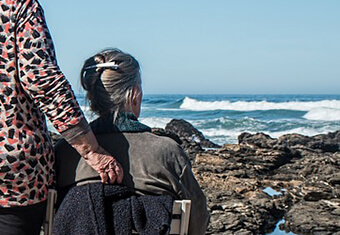If a parent becomes or may become mentally incapable of managing their own affairs, there are a few options to consider. The following information may be helpful if your parent(s) have been diagnosed with dementia or are experiencing the early onset of this disease. Please note that this article gives general information for provinces other than Québec. For information regarding Québec, please see the article “Incapacity Planning in Québec”.
Appointing a Power of Attorney for Property (POAP)
The role of someone appointed under a POAP is to step into the shoes of an incapable individual for the purpose of making financial decisions that they can no longer make for themselves. The purpose of a POA is to protect the interests and welfare of the individual who appointed the attorney.
An individual who has been appointed under a POAP can manage the grantor’s financial affairs and make legal decisions with respect to physical assets. Unless the grantor restricts these powers, the attorney will be able to do almost anything that the grantor can do concerning finances. They can sign documents, start or defend a lawsuit, sell property, make investments and purchase things for the grantor. However, under a POAP, an individual cannot make or change an existing Will, change beneficiaries on a specific insurance product or transfer their duties under the POAP to someone else.
Appointing a Power of Attorney for Personal Care (POAPC)
A POAPC is a legal document that gives an individual (the attorney) the power to act on someone else’s behalf by making personal care decisions. If an attorney has been appointed, they will be legally capable of dealing with the affairs of someone who is incapable of making their own such decisions. Unless the attorney’s powers are restricted, they will be able to make almost any decision pertaining to the incapacitated individual’s personal life, including choices as to medical treatment, housing, food, and other care. The PAPC will come into effect only when an individual is deemed mentally incapable of making their own personal care decisions.
It is possible that an incapacitated parent has already created a POAPC without the knowledge of one or more of their children. Inquiries should be made to legal advisors to determine whether a POAPC has been signed. If there is no pre-existing Power of Attorney, it may still be possible for a parent who is experiencing the early onset of dementia to execute one, so long as there is still sufficient mental capacity to do so.
If an individual becomes incapable of making personal care decisions, and they have not appointed an attorney for personal care, a family member will automatically have the right to make decisions on the individual’s behalf, unless someone else is appointed. A Court may appoint a guardian to make decisions on behalf of an incapable person for some or all aspects of personal care.
Become a guardian
If a parent becomes or may become mentally incapable of managing their own affairs, there are a few options to consider. The following information may be helpful if your parent(s) have been diagnosed with dementia or are experiencing the early onset of this disease. Please note that this article gives general information for provinces other than Québec. For information regarding incapacity planning in Québec, please see the article “Incapacity Planning in Québec”.
Appointing a Power of Attorney for Property (POA)
The role of someone appointed under a POA is to step into the shoes of an incapable individual for the purpose of making financial decisions that they can no longer make for themselves. The purpose of a POA is to protect the interests and welfare of the individual who appointed the attorney.
An individual who has been appointed under a POA can manage the grantor’s financial affairs and make legal decisions with respect to physical assets. Unless the grantor restricts these powers, the attorney will be able to do almost anything that the grantor can do concerning finances. They can sign documents, start or defend a lawsuit, sell property, make investments and purchase things for the grantor. However, under a POA, an individual cannot make or change an existing Will, change beneficiaries on a specific insurance product or transfer their duties under the POA to someone else.
Appointing a Power of Attorney for Personal Care (PAPC)
A PAPC is a legal document that gives an individual (the attorney) the power to act on someone else’s behalf by making personal care decisions. If an attorney has been appointed, they will be legally capable of dealing with the affairs of someone who is incapable of making their own such decisions. Unless the attorney’s powers are restricted, they will be able to make almost any decision pertaining to the incapacitated individual’s personal life, including choices as to medical treatment, housing, food, and other care. The PAPC will come into effect only when an individual is deemed mentally incapable of making their own personal care decisions.
It is possible that an incapacitated parent has already created a PAPC without the knowledge of one or more of their children. Inquiries should be made to legal advisors to determine whether a PAPC has been signed. If there is no pre-existing Power of Attorney, it may still be possible for a parent who is experiencing the early onset of dementia to execute one, so long as there is still sufficient mental capacity to do so.
If an individual becomes incapable of making personal care decisions, and they have not appointed an attorney for personal care, a family member will automatically have the right to make decisions on the individual’s behalf, unless someone else is appointed. A Court may appoint a guardian to make decisions on behalf of an incapable person for some or all aspects of personal care.
Become a Guardian
A ‘Guardian of Property’ (also known as a “Trustee” in some provinces) is a person who is appointed to manage the financial affairs of an individual who is mentally incapable of doing so themselves. A Guardian may be appointed one of two ways:
(1) By a provincial Public Guardian and Trustee, or
(2) By a Court.
A Guardian of Property can do almost anything the incapable person could do in relation to their property. This may include collecting and depositing income, paying bills, making purchases and looking after legal matters. However, a Guardian of Property cannot make or change a Will.
A ‘Guardian of the Person’ (also known as a “Committee” in some provinces) is an individual authorized by the courts to make personal decisions for someone who is mentally incapable of doing so themselves. Generally, a Court will not appoint a Guardian of the Person if someone has been appointed under a Power of Attorney for Personal Care.
For legal advice with respect to becoming a Guardian of Property or a Guardian of the Person, please contact a TEP.
Other Options
Another option to consider under certain circumstances is a limited ‘trusteeship’. The administrators of some government benefits such as Canadian Pension Plan or Old Age Security can appoint a “trustee” to manage income on behalf of a recipient who has been deemed mentally incapable. This option is not appropriate for a recipient who also receives income from other sources, or has assets or legal matters that require management.
For further information and help planning for family members with dementia please consult a TEP.
 Canada
Canada  UK
UK





